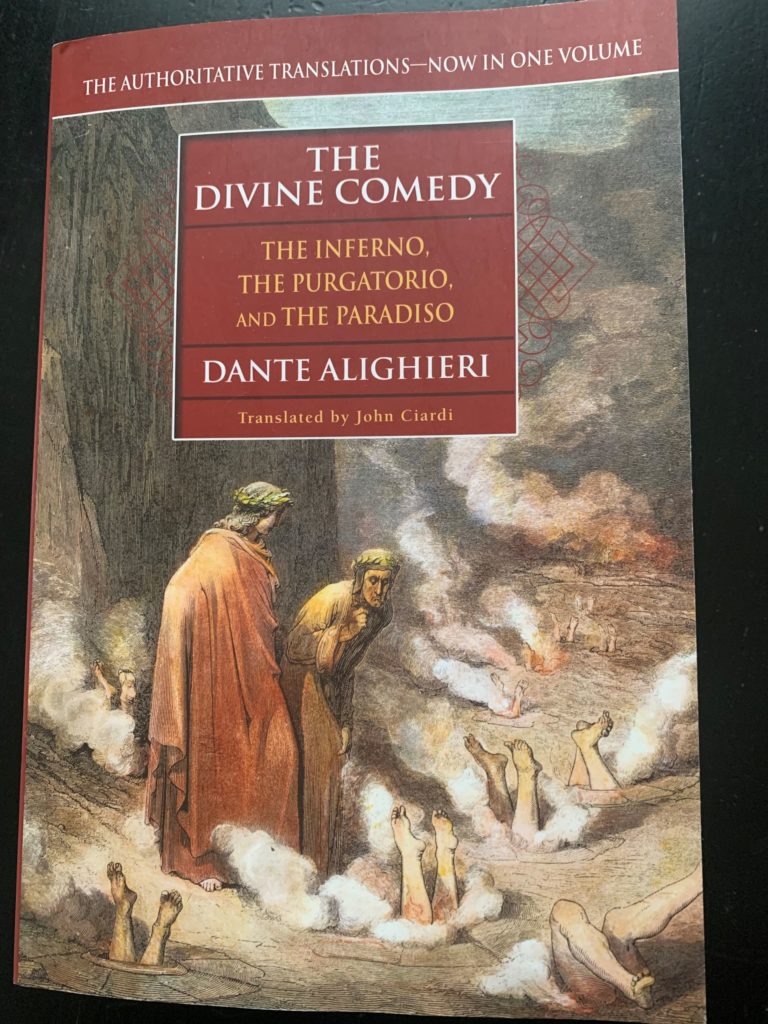This week we are at Cornice three, the wrathful. On one hand, only having one Canto to read is nice and easy. On the other hand, it is difficult because there is not that much to talk about. That is definitely the case here. There is a little description of the environment and one interaction with a basically unknown character so that is it.

Cornice three is filled with smoke. Apparently, the symbolism relates to wrath in that when a person is in rage, their judgement is clouded with the true ability to see the situation clearly. I wonder if this is the level that Dante is headed for. Clearly, he is impacted by the fear of being there or falling off of the edge.
That is is about all I have to say about it. I was looking up the definition of wrath to see if I could infer more this week than is really written. Wrathful is literally defined as full of wrath. And wrath is defined as vengeful anger or rage. Then I stumbled across something a little more interesting.
Wrath is defined as one of the seven deadly sins. Let us see if you recognize these? The remaining six are pride, greed, lust, envy, gluttony, and slothfulness. These were first defined by Pope Gregory I in the 6th century. This seems a lot like the circles of hell and purgatory. But what is even more interesting is that they were picked up again by St. Thomas Aquinas in the mid 13th century.
While not likely a contemporary of Dante’s (late 1200s) surely being Italian and Dante being exposed to priesthood, he was surely influenced by this work. Reading the Encyclopedia Britannica article, it mentions that the seven deadly sins are not specifically named in the bible, which I would agree. Despite not being codified, it is also true that many situations are specifically mentioned in the bible.
Pope Gregory I is credited with organizing the church into it’s medieval form. He consolidated both secular and religious power into one institution. I think that he left an indelible mark on Dante given that he will have more roles and interactions in the future. Not only has Dante bought the concept, but he also thinks pretty highly of him as well.
The same also goes with St. Thomas. Again looking around, there are books comparing and crediting the two. The one remarkable argument in this chapter is the case for free will. Without it, why would there be any need for purgatory. And if we are all predestined to our position and results in life, what would be the point of the afterworld in general?
I guess I fall somewhere in the middle. I do believe that God has a hand in our fate, but I also believe that our free will influences that. So for instance, take a fatal illness. I am not convinced that this is punishment, but I do believe that there is something to be learned or taught from it. It is the actions that people take during that time that helps push God’s will. It is up to the individual to do with that what they can. Salvation is always an waiting regardless of fate.
End Your Programming Routine: While one chapter is a quick read, it wasn’t insignificant. I stumbled upon the origin story of the structure of the Divine Comedy. If I wouldn’t have been looking for more about wrath, I don’t know if I ever would have made the connection to the church history largely because I am not Catholic. Next week it is Cantos XVII – XIX if you are following along.
Recent Comments